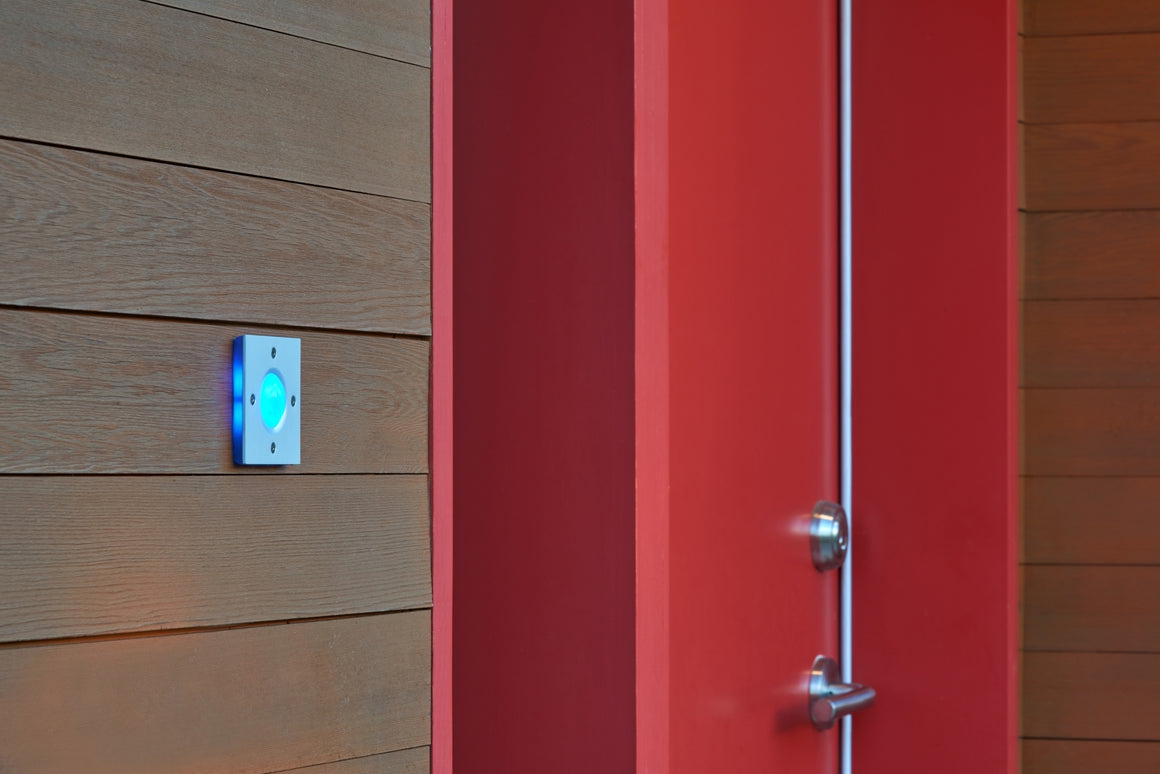FAQ
Q: How do I install Spore doorbell buttons and chimes?
A: Please see the downloadable installation diagram appropriate to the button or chime you are considering. All Spore products are packaged with installation instructions. Please contact us via email for help on special situations.
Q: Are Spore buttons compatible with wireless doorbell systems?
A: Unfortunately not. Because Spore illuminated buttons require a power source, they must be hardwired.
Q: My house is brick: Is there any way to install a Spore button?
A: We recommend using masonry anchors, available at any hardware store, and screwing the button on with the included mounting hardware. In some applications, it might be preferable to use construction or silicone adhesives to mount the button.
Q: My button will be installed in a location that gets a lot of water. Is there a way to seal the button?
A: In situations where a button will be directly exposed to the elements, we recommend that you seal the back plate during installation. Simply run a thin bead of silicone adhesive around the perimeter of the back plate before screwing it to your surface.
Q: Can Spore buttons be used in other applications as switches?
A: Yes. We have seen them used as push buttons for garage doors and as call buttons in a customer-service setting, among other applications. Please contact us for installation guidance and we can help you figure out how to make them work.
Q: Can Spore buttons be used as garage door openers?
A: Yes. Our buttons are low-voltage switches, and they can usually be used in lieu of a standard low-voltage garage door button. Install as recommended by garage door manufacturer, or contact us for ideas on how to make it work.
Q: My Spore button seems to be having some trouble. How can I get it repaired?
A: Depending on the age and model of your doorbell button, we should be able to help you figure out how to make your button work again. In some cases, we may be able to send you a replacement part with instructions on how to fix it yourself, or you may need to send the unit in for repair. Depending on the issue, there may be a nominal charge. Contact us and we can help you figure out what you need to get your button working.
Q: The resin (plastic part) on my old doorbell button has seen better days. Can I replace it?
A: Yes, if you have a soft resin button (square, round, or R2 models). Please contact us for a replacement resin at a nominal charge.
Q: Can I change the color of my doorbell button by replacing the resin color?
A: Because our buttons are made with colored LEDs and colored resins, a change in resin color would produce inferior illumination. While technically possible, we do not recommend it.
Q: I’m having a problem with my Ring chime—help!
A: First double check to make sure that your chime is installed with the plunger assembly installed horizontally. If you have installed the chime correctly and still cannot get it to work, please email or call us for troubleshooting assistance. We can usually help you figure out the issue, and we can always send replacement parts if necessary.
Q: Are Spore products ADA compliant?
A: All of our stock products meet ADA standards, and we are able to design custom solutions for special projects with ADA specifications in mind.
Q: Does Spore offer any other custom finishes?
A: We do, usually subject to minimum orders. Please contact us for further details on how Spore may be able to create a finish or a whole new solution for your project.
Q: I have no space for a doorbell button next to my door, any ideas?
A: True is our smallest button, allowing for installation on narrower door frames. Still, plenty of homes lack a workable option in the traditional spot beside the door. Please see our gallery for some ideas on other options. Note that installation in any location will require hardwiring, which may involve the help of an electrician.

